Night Of The Superfly
When little-known Srisaket Sor Rungvisai tabbed a controversial upset win over four-time champion Roman “Chocolatito” Gonzalez last March, a first round knockdown in favor of the challenger was the difference in the decision of a close and hard-fought battle. In the highly anticipated rematch last night, Gonzalez wisely avoided getting derailed in the opening moments of the bout, but he couldn’t fend off the inevitable, as the bigger, stronger Sor Rungvisai overpowered the Nicaraguan and decked him twice in round four, the second time scarily enough to bypass the count entirely.
Sor Rungvisai’s massive victory served as the main course of a card geared primarily toward boxing’s hardcore contingent. The first two fights of the evening had Juan Francisco Estrada narrowly defeating Carlos Cuadras by unanimous decision, while Naoyo Inoue made a successful U.S. debut, pulverizing Antonio Nieves in six rounds.
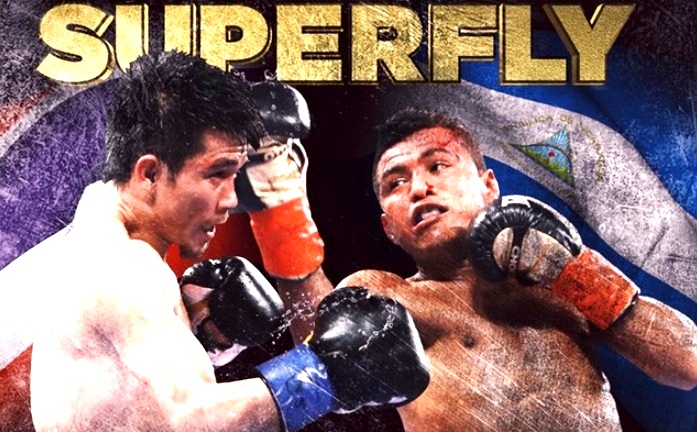
The anticipation for an HBO broadcast featuring six super flyweight boxers from five different countries was such that anything short of sensational entertainment may have been considered a bust. Indeed, aficionados sang of a daring fight card comprised of some of the very best talents in boxing’s lower weight classes, and thankfully the pundits were proven correct as the three bouts not only provided entertainment, but were intriguing for different reasons.
Though the men in the main event had fought more than 45 times apiece as professionals prior to their first encounter, Gonzalez had been considered the consensus best fighter in boxing, pound-for-pound. That first loss, while controversial, was enough to firmly move Gonzalez away from the top spot, even if only tentatively. The jarring outcome of the rematch, however, was final. There will be no talk of flat training camps or bad decisions when it’s not even clear yet whether Gonzalez will ever regain any semblance of his previous form. It’s entirely possible that “Chocolatito” is finished.
But it didn’t look that way at the start of the main event last night. Rather than sticking around to be surprised early on by the strength of a visibly bigger southpaw foe, Gonzalez rode a high guard through the first round, sizing Sor Rungvisai up while clearly shrugging off the first round. When round two began, Gonzalez became someone else, ripping and scratching at Sor Rungvisai with combinations and maneuvering about the Thai quite well. But one thing hadn’t changed since the first fight: when Sor Rungvisai landed, Gonzalez had to reset himself.
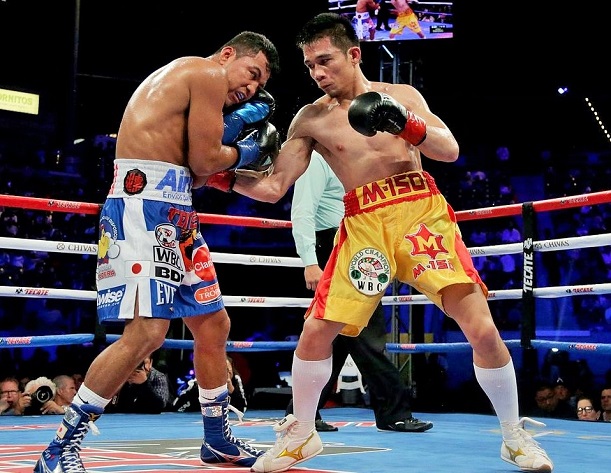
Before long a repeat of the first bout unfolded, with Gonzalez peppering Sor Rungvisai with cleaner, snappier blows, but shifting with the weight of every punch he took. It appeared “Chocolatito” thought it would be easier this time, and the look on his face as Sor Rungvisai tagged him with heavy leather in round three confirmed that talk of the first fight being a fluke was nonsense. Gonzalez couldn’t get out of the way and was being overwhelmed.
Sensing the fight slipping out of his control, Gonzalez’s response was to simply throw more punches, which only led to a faster and more violent conclusion. As he looked to set up a left hook in round four, a thudding right hook to the jaw floored him. “Chocolatito” rose to a knee and got up at the count of eight, clearly dazed and likely surprised that he once more found himself looking up at Sor Rungvisai while tasting blood.
Like any great warrior would have done, Gonzalez tried to fight his way out of danger. His bravery was rewarded with another southpaw right hand to the mush, this one ending the fight. And, quite possibly, Gonzalez’s career, and possibly reinforcing the unfortunate notion that boxers aren’t good once they lose. Pushing the importance of an undefeated record is nothing new, but Floyd Mayweather’s astronomical financial success stemming from parading his unbeaten record around and conflating it with greatness will be impossible for a generation of fighters, promoters and matchmakers to ignore.

The truth is, at 30-years-old, Roman Gonzalez had reached the age where most little fighters begin to fall apart, if they haven’t already. In nearly a decade at the top of the sport, “Chocolatito” tore through three divisions and dented a fourth, accomplishing more than enough to earn a one-way trip to the Hall of Fame in Canastota.
If Gonzalez hit a wall in terms of weight, then Sor Rungvisai, now 44-4-1 with 40 knockouts, was the one who made sure it stuck. Clearly, a much better showcase opponent for Gonzalez would have been someone less-tenacious or more defensive-minded, thus mitigating the significance of the size difference. But Sor Rungvisai went all in on just being too much for Gonzalez physically. And he was right. He managed to repeatedly catch Gonzalez despite the latter’s good head movement, kept attacking, absorbed Roman’s shots with ease and just would not cease. His pressure might not be a skill in the conventional sense, but no super flyweight will easily back Sor Rungvisai off. And he’s beaten Gonzalez twice.
Long has Asia been home to some of the best smaller division fighters in the world, even non-Asian fighters. Japan, for instance, has a thriving fight scene that honors warriors of all sizes and nationalities. Gonzalez is no exception, having fought eight times in Japan and bringing Sendai Tanaka into his corner for the Sor Rungvisai rematch. And true to form Japan birthed another star of the small man variety in WBO super flyweight champion Naoya “Monster” Inoue, who crushed Antonio Nieves with ease in last night’s co-main event.
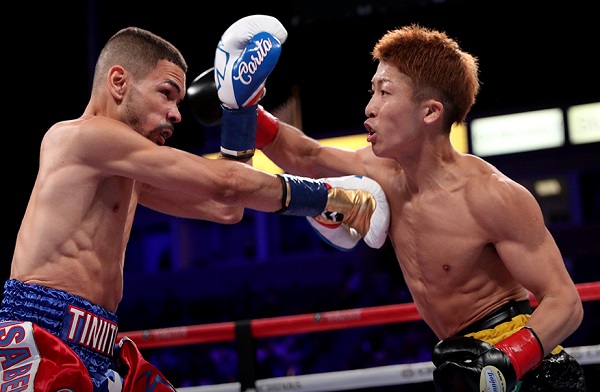
Nieves, 17-2-2 with 9 knockouts, was never really in the fight, even if he was able to find Inoue with leather from time to time. The champion used an active jab and punishing right hand to overwhelm the Puerto Rican before really opening up with body work in rounds four and five. In the fifth, Nieves took a knee following a vicious left hook to the body. He bravely rose, but was rewarded with a dozen or more slugs to the gut for his effort and barely made it to the bell. Inoue, who had actually begun to taunt and appeared frustrated by his inability to cleanly put Nieves away, mercilessly flogged his opponent for another full round before the challenger’s corner wisely called the whole thing off after the sixth.
Despite a one-sided performance, Inoue at times looked eminently hittable and stayed mostly in one gear. But the degree to which he punished Nieves was borderline mean, and at only 14-0 with 12 knockouts, he should match up well with any other elite super flyweight.
Meanwhile, a more established star in Juan Francisco Estrada had a strange evening, defeating fellow Mexican Carlos Cuadras by unanimous decision, though not without a last minute snafu. Estrada, whose defeat of Giovani Segura in 2014 drew more than 13 million viewers in Mexico, found himself opening up the HBO broadcast and fighting an uphill battle as Cuadras started the match quickly and appeared to win three of the first four rounds.
What followed was a hard-fought skirmish where both men could make a case they won. Cuadras set the pace in the first half, but ultimately it was Estrada’s patience that scored him a knockdown on a long right hand in round ten and earned him the win. The knockdown itself served as a kind of confirmation that Estrada had taken enough control to secure the victory. However, scores of 114-113 on all three cards were initially announced for Cuadras, but the crowd’s annoyance was quickly stamped out when the correction was made. Estrada improves to 36-2 with 25 knockouts, while Cuadras falls to 36-2-1 with 27 knockouts.
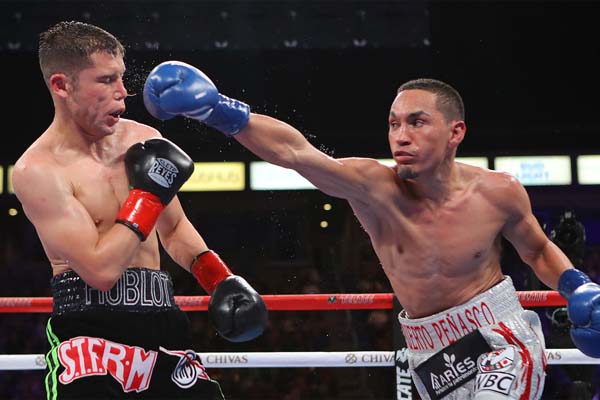
In late 1979, the World Boxing Council announced that a new division called “super flyweight” would debut early the following year. The decision was generally met with indifference, as have been the lower weight classes for most of their existence. Another lower weight class wasn’t even wanted, so why would one be needed? But in the nearly 40 years since its debut, super flyweight has given boxing great fighters such as Khaosai Galaxy, Johnny Tapia, Jiro Watanabe, Gilberto Roman, and Vic Darchinyan.
The prematurely sentimental in all of us would like to believe that super flyweight, even if ever-so-briefly, also gave us Roman Gonzalez. But perhaps that’s some romantic flight of fancy. But what is certain is that the division gave us a fight card called “SuperFly” in 2017, and with it, three more reasons to pay attention to what boxing’s little men can do. — Patrick Connor

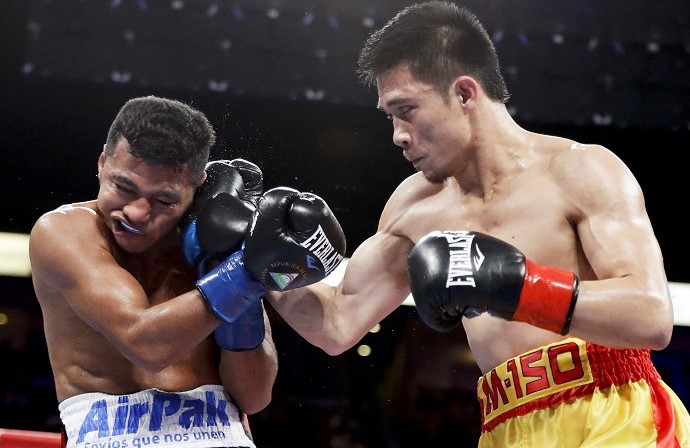

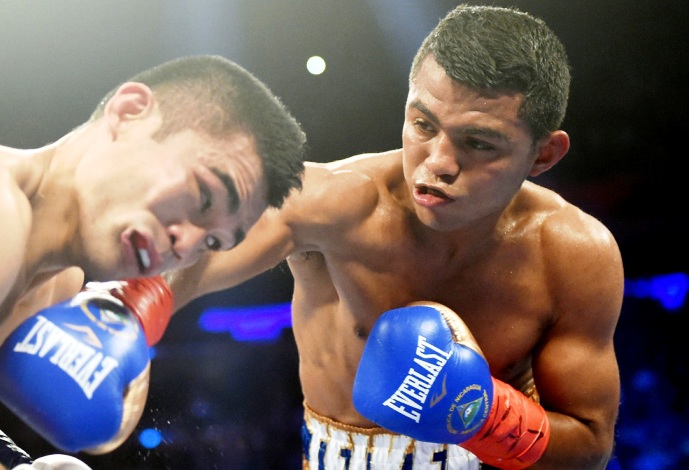

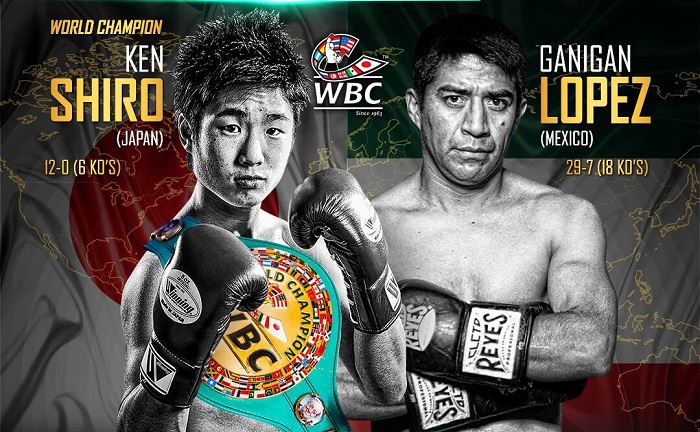
This card somehow managed to surpass the hype.
Great night.